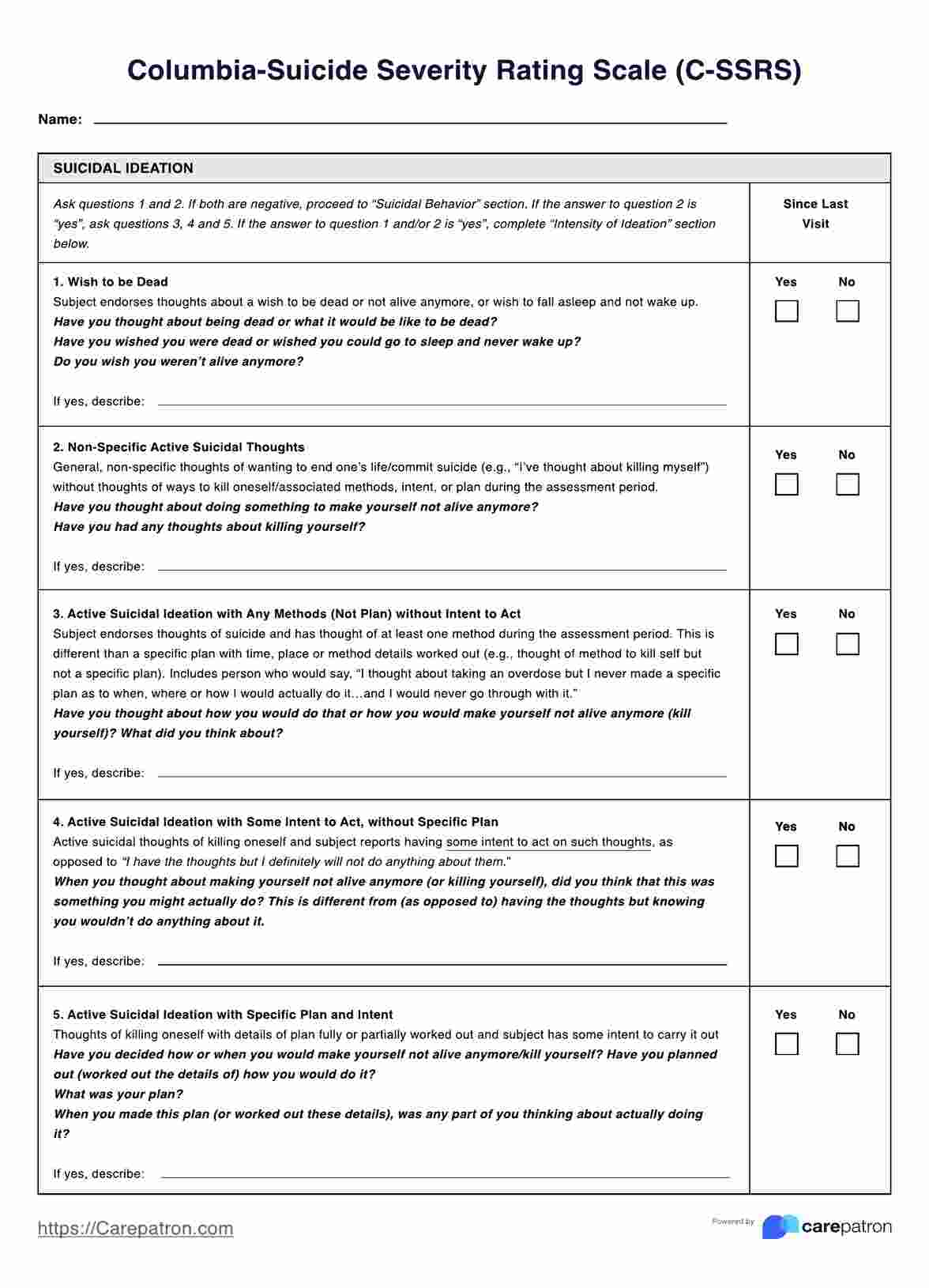The Columbia Suicide Severity Rating Scale is widely used by mental health professionals, medical practitioners, and other healthcare providers to assess the risk of suicide in individuals. It is particularly useful for assessing suicidal ideation and determining whether a person needs immediate intervention or more comprehensive treatment.

C-SSRS
Discover how to use the Columbia Suicide Severity Rating Scale (C-SSRS) to evaluate suicidal ideation and behavior. Download a PDF copy of this template.
C-SSRS Template
Commonly asked questions
You can use the Columbia Suicide Severity Rating Scale to assess and monitor suicidal ideation in individuals. It can help you identify immediate risk factors and underlying issues contributing to suicidal behavior. Additionally, it can be used as a tool for evaluating treatment outcomes.
The Columbia Suicide Severity Rating Scale is a comprehensive tool that helps assess the risk of suicide in individuals. It thoroughly assesses suicidal thoughts and behaviors, allowing clinicians to assess the severity of a person’s suicidal ideation.
EHR and practice management software
Get started for free
*No credit card required
Free
$0/usd
Unlimited clients
Telehealth
1GB of storage
Client portal text
Automated billing and online payments











